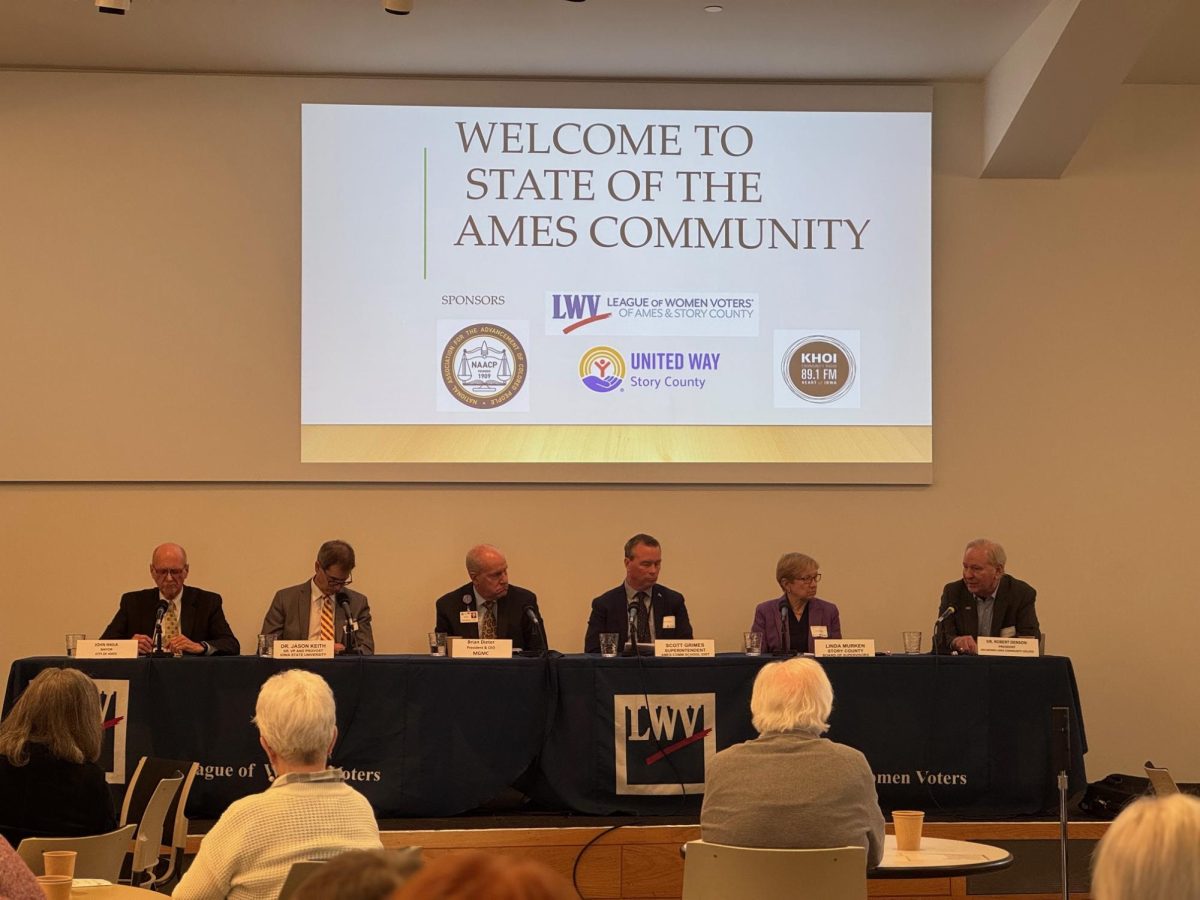What you do with your beliefs matters
November 17, 1997
It does not matter what you believe, but what you do with your belief does matter. I am writing this letter neither to respond to nor dispute with D. H. Leonard about his opinion in “Disputing religious pluralism.” Rather, I want to convey my message to other readers who are searching for a peaceful kind of happiness in life.
Life is a journey from birth to death. During this path, people face problems, and religions (or moral codes) come as a guiding light. Two categories of religion exist, one with gods and another without. It is not possible for average people to either prove or disprove gods. For questions that are beyond our capability to answer, our attitudes to such questions are more practical than debating that leads us to ill feelings toward one another.
Throughout history, people have discussed the same topic, hated each other, even killed those who believed differently.
What is important is what you do with your belief, or disbelief for that matter. If a person believes his or her one-and-only God is a white male and only his teachings make sense while others do not, then that person wants to live but does not let other people live.
I am not convinced that such beliefs come from a true God. If, however, one believes there is one spiritual God and all gods are one, his belief leads to harmonious living among Jews, Christians, Muslims, Buddhists and non-religious groups alike. This spiritual God, I revere.
Scriptures are beyond words and beyond ignorant minds. The ability to interpret scriptures from any religion is limited by the interpreter’s own level of mind and wisdom. The analogy can be seen in people who read the same textbook, say chemistry.
Do you think a person who dropped out of high school will interpret the text the same way as a person who holds an advanced degree in chemistry? The analogy holds true to people with different levels of mind and wisdom.
We have experienced time and time again in history that people killed each other because of different beliefs. The Teacher of my religion said, “I do not see any quality in human beings as important as the point of view (attitude) and the process of thinking.” He established the right view as the pre-requisite for the way to peaceful living.
If the interpretation from scriptures supports the welfare of the world, promotes harmony among people with different faiths, unites people to do things that benefit oneself and others and lifts up human spirits to a peaceful compassionate level, then the interpretation is wholesome.
If the interpretation supports the ego of the interpreter and his/her group, leading to hatred among humankind, and the mind of the interpreter is masked with fear, ignorance, hatred, anger, greed and a selfish kind of love, then such interpretation is wrong.
I practice a religion that has no God, but I do not deny other people’s beliefs provided that they are open-minded to other’s beliefs as well. People who practice this religion are free to question any part of the Teacher’s teaching.
Indeed, while the Teacher was alive over 2,500 years ago, he encouraged his disciples to ask questions. Faith in this religion is not a blind quality but is combined with wisdom. Thus a person is attracted to the teachings because some wisdom perceives truth in it, meanwhile accepting with faith those teachings as yet unproved. Our teacher laid a foundation of “faith” in this religion as follows:
Do not believe because the idea was passed on from many people. Do not believe because it was a tradition. Do not believe because it was a rumor. Do not believe because it was in the text or referred to the text. Do not believe because it was rationalized.
Do not believe by estimation. Do not believe by reasoning from what you see. Do not believe because it was agreeable to your belief. Do not believe because it came from a reliable source. Do not believe because your teacher said so.
Believe only after the idea has been proven and acknowledged by you that it is wholesome and without sinful results. The pundit (learned) person praises it. The truth eradicates problems completely to benefit you and others, leading to a peaceful state of mind. Then and only then it should be believed and practiced.
To judge what action is wholesome, our Teacher laid the following basis of judgment:
The moral level — does it benefit all parties concerned? The mind, or meditation, level —how do parties concerned feel about it? The spiritual, or wisdom/insight, level — what are motivations behind the action?
In addition, he also laid the following judgement to be considered before saying something: Is it true? Is it kind? Is it necessary? Our Teacher neither considered himself as a God nor his teachings from God.
He said, “Whether I was born or not, the ‘Law of Nature’ that I declared exists. I only discovered it, put it into systemic order and persuaded you to practice it. I am your Teacher, who shows you the way but cannot do it for you. To achieve your goals everyone has to do it by her/himself.”
It does not matter to me what other people believe, but what you choose to do with your belief does matter. Belief should be recognized as belief and not fact.
It does not matter whether people who believe in gods say my religion is not a religion because it contains no god and the teachings require high practice of the mind and wisdom that is impossible for many to achieve.
They categorize my religion as philosophy. A teaching is considered philosophy by those who do not yet see the truth. It becomes a religion to those who see and actually live with the truth.
It is not important to state the title of this religion as we are not interested in converting people. However, for some who may benefit from further studies, not for the debate but for solving life’s problems, this religion is called “Theravada Buddhism.”
Usana Navanugraha
Ames






